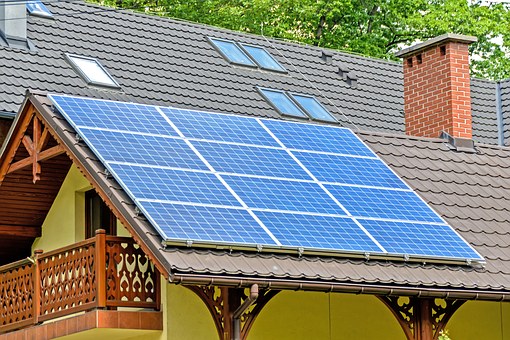It is an excellent chance to see that people worldwide have a renewed interest in reducing social initiatives’ environmental harm, which has resulted in many exciting approaches like tiny houses. For some, small houses mean independent living, and for some others, it’s living close to nature. Many others consider the construction of small homes to be taking them many steps closer to reducing their carbon footprints on Mother Earth.
Regardless of the motivations behind the building, these cute little living spaces set forth an excellent opportunity to explore solar energy. As the overall concept is to reduce cost and environmental harm, integrating solar into a tiny house is the best approach to take from the planning process itself of such a home. It will also supplement the purpose of reducing environmental harm with your home construction and power consumption initiatives.
However, while planning to implement solar energy in tiny houses, it is ideal to consider solar energy advantages and disadvantages by understanding the limitations and complications. In this article, we will attempt to have a brief overview of solar implementation in tiny houses.
Get up to 56% of solar panel costs credited back by federal and state tax credit programs. Learn more about Minnesota solar incentives and start saving today!
Installing Solar Panels On The Roof
If you plan to install solar panels on the roof, then the tiny house roof must be designed to get the solar panels mounted correctly. To do it well, it is essential to get an inclined roof of 35° to 45°, which is adequately reinforced to support the solar panel’s weight and handle the wind load on the standard solar modules. It is better to consider this aspect if you plan for solar energy for tiny houses, which are mobile.
Power Storage
Battery storage is another significant aspect to consider in terms of solar installation on tiny houses. The usual storage batteries for solar systems can be substantial, so the ideal space to find is somewhere near the axle to save space and reduce the center of gravity. It may also be needed to accommodate additional electronics, too, such as the inverter and charge controller for the solar system’s operation. It is ideal to install these too close to the batteries to minimize the extension of DC wires.
Other Considerations
As tiny houses have limited space, it is ideal to consider solar implementation needs at construction to avoid any space issues. Also, to prevent any weather damage to the solar system, installing a weatherproof enclosure to carry the batteries and other electronics is essential. Thought should also be taken on disassembling the system for transportation, even if you are moving home.
If you have a small house and limited space to install solar, it may be worth considering investing in battery storage as well. That way, you will be able to save a lot of the energy your system generates to use around the clock. It’s no surprise that the PowerWall has become a popular battery solution in Victoria and worldwide.
More importantly, the power consumption needs to be estimated before planning for a solar system to check its feasibility. Thought should be given to the additional consumptions using the oven, stove, hot water, heating, cooling, refrigeration, etc. The power consumption needs may vary from user to user, so proper forethought should be given to an adequate plan for your tiny house solar implementation.







